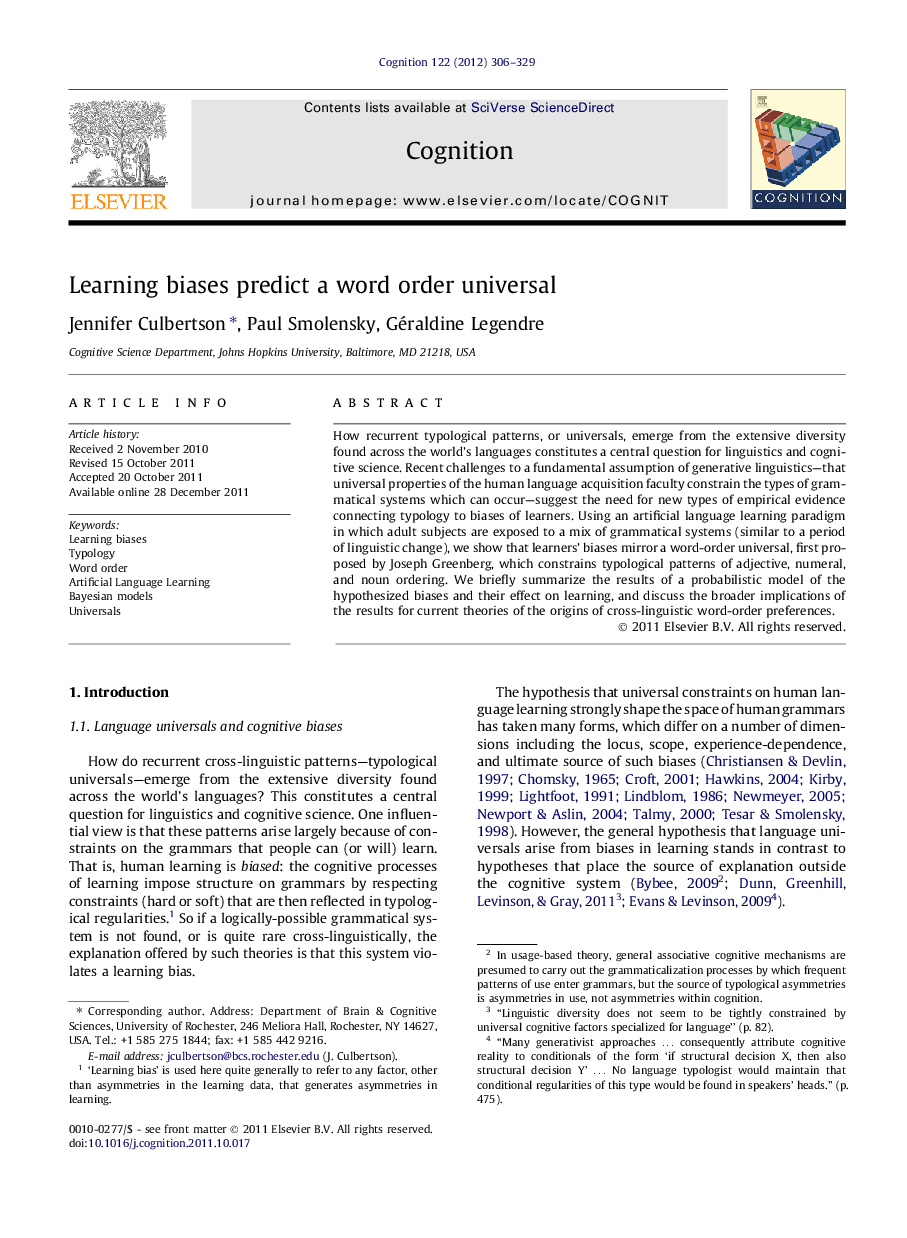| کد مقاله | کد نشریه | سال انتشار | مقاله انگلیسی | نسخه تمام متن |
|---|---|---|---|---|
| 926921 | 921914 | 2012 | 24 صفحه PDF | دانلود رایگان |

How recurrent typological patterns, or universals, emerge from the extensive diversity found across the world’s languages constitutes a central question for linguistics and cognitive science. Recent challenges to a fundamental assumption of generative linguistics—that universal properties of the human language acquisition faculty constrain the types of grammatical systems which can occur—suggest the need for new types of empirical evidence connecting typology to biases of learners. Using an artificial language learning paradigm in which adult subjects are exposed to a mix of grammatical systems (similar to a period of linguistic change), we show that learners’ biases mirror a word-order universal, first proposed by Joseph Greenberg, which constrains typological patterns of adjective, numeral, and noun ordering. We briefly summarize the results of a probabilistic model of the hypothesized biases and their effect on learning, and discuss the broader implications of the results for current theories of the origins of cross-linguistic word-order preferences.
► Biases revealed during an artificial language learning task parallel word order typology.
► Learners tend to regularize variation in the input, but substantive knowledge affects the likelihood of regularization.
► Cognitive biases in word order learning can be modeled as Bayesian priors.
Journal: Cognition - Volume 122, Issue 3, March 2012, Pages 306–329